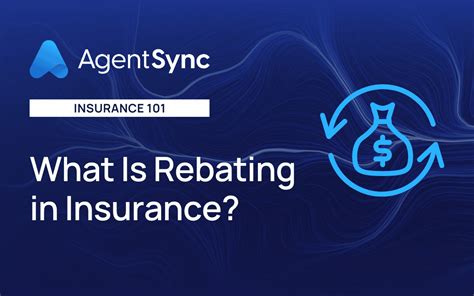In the world of insurance, rebating is a term that often raises eyebrows and invites questions. It refers to the practice of returning a part of the insurance premium to the policyholder as a form of incentive. Insurance policies can often be complex, and understanding the nuances of rebating is vital for consumers. In this article, we will unpack what rebating means, how it works, its implications for policyholders, and why it remains a controversial topic in the insurance industry.
What is Rebating?
Rebating involves an insurer providing a financial inducement or incentive to a policyholder in the form of a partial refund of their paid premium. This can take various forms, such as cash, gifts, or discounts on future insurance premiums. The concept of rebating stems from the idea of making insurance products more attractive to consumers in a competitive market.
The Legality of Rebating
The legality of rebating varies significantly across regions and heavily depends on insurance regulations. In many jurisdictions, rebating is frowned upon or outright illegal because it can lead to unethical behavior among agents and disrupt the principles of fair competition. Insurance regulations aim to enforce transparency and equity in the market, thereby ensuring that all consumers receive a fair price for their insurance coverage.
For example, several states in the U.S. prohibit rebating, while others allow it under strict regulations. Therefore, it’s crucial for policyholders to understand their local laws regarding rebating and consult their insurance agents on what is permissible in their region.
Types of Rebates
Rebates can take different forms, and it is essential for policyholders to recognize these types to understand what they might encounter:
- Cash Rebates: This is the most straightforward form, where an insurer provides a percentage of the premium back to the policyholder in cash.
- Gift Cards or Merchandise: Instead of cash, some insurers may offer gift cards to popular retailers or even tangible goods as a form of rebate.
- Future Discounts: Insurers may offer discounts on future premium payments as an incentive for policyholders.
The Benefits for Policyholders
Understanding and potentially accessing rebating can afford policyholders certain benefits, including:
- Cost Savings: Rebates can lead to significant savings for policyholders, thus making insurance more affordable.
- Increased Engagement: Insurers offering rebates may encourage policyholders to engage more with their policies, leading to better understanding and management of coverage.
- Enhanced Loyalty: Policyholders who receive rebating benefits might be more inclined to stick with their insurer, improving customer retention.
Risks and Downsides of Rebating
With the potential benefits come certain risks that policyholders must consider:
- Quality of Coverage: Focusing too much on rebates may lead policyholders to choose lower-quality policies or overlook essential coverage features.
- Ethical Concerns: The practice of rebating can raise ethical concerns, especially in jurisdictions where it is illegal, jeopardizing policyholder rights and protections.
- Service Issues: Companies offering rebates may be less focused on customer service, as they work to offset costs associated with rebates.
How to Approach Rebating
If you’re considering an insurance policy with a rebate offer, here are some tips:
- Research the Insurer: Ensure that the insurance company is reputable and licensed in your state.
- Understand the Terms: Read the fine print of any rebate offer, including any conditions that may apply.
- Consult Professionals: Speak with a licensed insurance agent or financial advisor if you’re unsure about the implications of rebating.
Conclusion
Rebating can serve as an attractive marketing strategy in the insurance industry, providing potential savings and incentives for policyholders. However, due diligence is essential when considering insurance policies that involve rebates. Policyholders must remain informed about the legality of rebating in their jurisdiction, understand the potential advantages and drawbacks, and make choices that align with their financial goals and values. Just as in any financial decision, building a comprehensive understanding of these practices can help consumers navigate the complex landscape of insurance more effectively.
FAQs
1. Is rebating legal in all states?
No, the legality of rebating varies by state. Some states prohibit the practice entirely, while others allow it under certain regulations. It’s essential to check the laws applicable in your area.
2. Can I get a rebate if I cancel my policy early?
In most cases, if you cancel your policy early, you may be eligible for a prorated refund of your premium, but this is distinct from a rebate. Rebates are typically offered as incentives, not refunds for policy cancellation.
3. Are rebates considered taxable income?
Generally, rebates do not count as taxable income, but this can vary based on local tax laws and the nature of the rebate. It’s advisable to consult a tax professional regarding specific circumstances.
4. How do I know if a rebate is legitimate?
Research the insurance company and read reviews to determine their reliability. Additionally, consult your insurance agent or local regulators regarding the terms of the rebate to ensure they comply with applicable laws.
Download Define Rebating In Insurance
